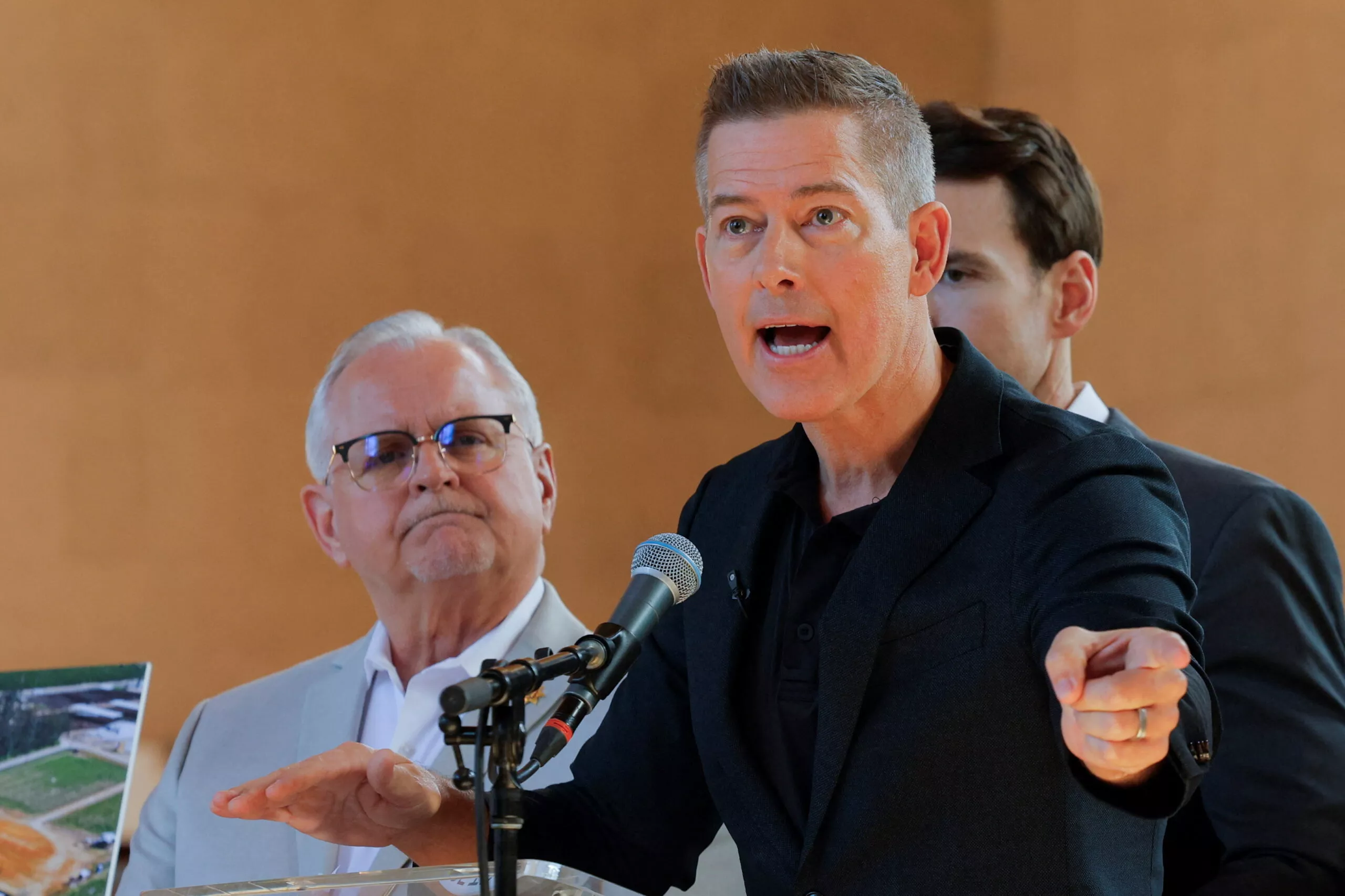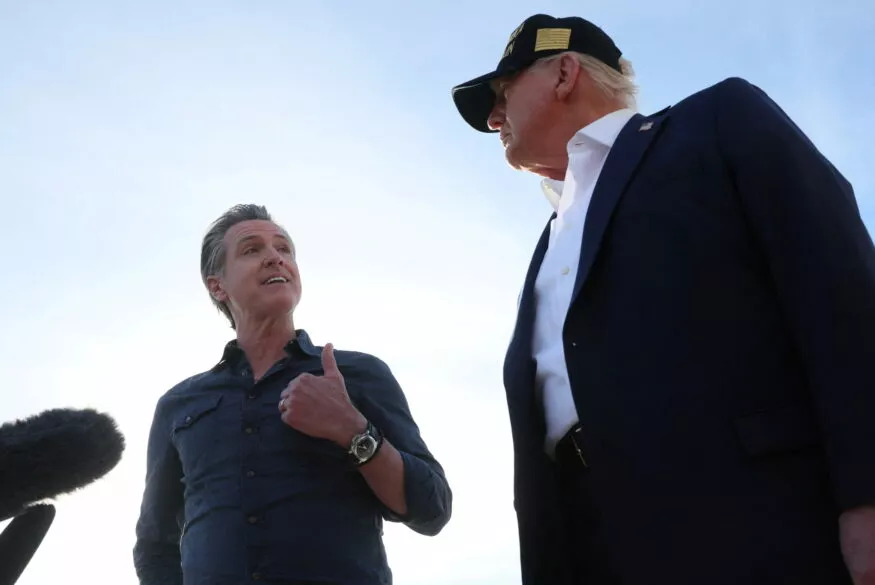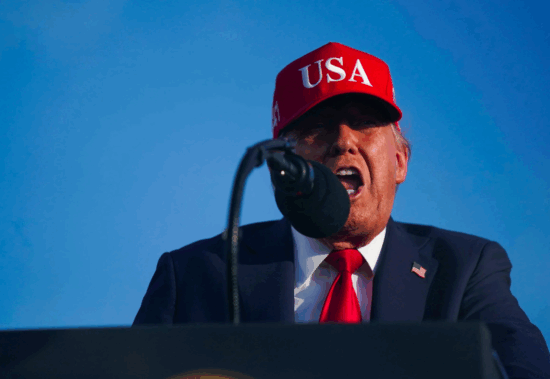DOT Sec. Duffy: Agency Won’t Fund Repairs for Cities That Supported Rioters
Transportation Secretary John Duffy announced this week that the Department of Transportation will not allocate federal funding to repair infrastructure in cities that he says “enabled or excused” violent rioting during recent episodes of civil unrest. The bold decision signals a sharp break from the Biden administration’s previous leniency toward progressive city leadership and opens a national conversation on accountability for local governance.
Speaking during a press briefing on Monday, Duffy stated, “American taxpayers should not be forced to bankroll the willful neglect and lawlessness embraced by city officials who refused to protect their citizens and infrastructure. We will prioritize communities that prioritize the rule of law.”
The move has sparked widespread reactions across political lines, but it is being celebrated by many conservative leaders who see it as a long-overdue return to responsible federal spending. While left-leaning cities often claim moral high ground in allowing mass protests to proceed unimpeded, critics argue that this tolerance enabled billions of dollars in damages, countless business closures, and dangerous spikes in crime.
Secretary Duffy’s comments appeared to reference cities like Portland, Seattle, and parts of California, where Democrat-led governments either delayed police response or publicly supported the protests that spiraled into rioting. According to Duffy, federal transportation funds should not be a “blank check” for cities that “abdicated their fundamental responsibility to protect life and property.”
Online reactions to Duffy’s announcement were swift and, in many conservative circles, enthusiastic. Eric Daugherty, a prominent policy analyst, posted on X (formerly Twitter): “Finally! Cities that cheered for chaos should not get a dime of federal repair funds. That’s what local accountability looks like.”
The @USDOT will NOT fund rogue state actors who refuse to cooperate with federal immigration enforcement.
And to cities that stand by while rioters destroy transportation infrastructure — don’t expect a red cent from DOT, either. Follow the law, or forfeit the funding. https://t.co/cCRi4ALT23
— Secretary Sean Duffy (@SecDuffy) June 16, 2025
This policy change may affect billions in potential transportation grants, with DOT making clear that it will now factor in “public safety records and law enforcement cooperation” when reviewing municipal requests for funding. The administration appears to be sending a message: those who enable destruction will not benefit from taxpayer generosity.
Critics from the progressive left have accused Duffy of politicizing disaster recovery funds, but supporters argue the politicization began years ago when blue-state leaders allowed radical elements to overtake their cities. “They let their streets burn,” said a former law enforcement official from Minneapolis. “Now they want the rest of us to foot the bill for their cowardice.”
According to the National Bureau of Economic Research, the civil unrest of 2020-2024 caused over $2 billion in property damage across more than 20 major U.S. cities. Insurance claims skyrocketed, but much of the repair burden ultimately fell to taxpayers. In cities like Los Angeles and New York, local officials openly rejected National Guard assistance and instead tried to frame the unrest as “peaceful protest.”
For many Christians and conservatives, the new policy reflects long-standing Biblical and constitutional principles. The Apostle Paul wrote in Romans 13 about the necessity of government maintaining order and punishing wrongdoers. When local governments refuse to do so, they not only fail their citizens but violate their God-ordained mandate to uphold justice.
Duffy, a Trump appointee with decades of experience in both the public and private sectors, has remained a vocal critic of the federal government’s hands-off approach to lawlessness under previous leadership. His latest statement is consistent with earlier comments emphasizing accountability and local stewardship. “Leadership has consequences,” he said. “And so does failure.”
This announcement is particularly timely given the ongoing national debate over federalism and the balance of power between Washington and local governments. It also comes amid renewed fears of unrest in the lead-up to the 2026 midterms. Duffy’s decision, therefore, may also serve as a deterrent to cities considering similar permissiveness in the future.
Duffy emphasized that this is not about denying help to Americans in need but ensuring the aid reaches places where elected officials act in good faith to protect their communities. He noted that cities that cooperate with law enforcement and take a strong stand against violent rioters will be eligible for full federal support.
The move has already led to speculation that other federal agencies could follow suit. If HUD, FEMA, or the Department of Justice were to adopt similar policies, it could represent a significant realignment in how the federal government handles urban policy—one more rooted in outcomes than ideology.
To many Americans frustrated by the lack of consequences for destructive behavior, this policy marks a refreshing change. Local governments that make reckless decisions should not be shielded from the consequences. As Duffy put it bluntly, “We cannot reward failure. We must invest in responsibility.”
This development is also likely to factor into the 2026 campaign trail. Republican candidates are already referencing Duffy’s stance as a model of common-sense leadership. If nothing else, the DOT’s decision draws a stark line: Federal aid is not unconditional. It is earned through governance that respects order, safety, and the American taxpayer.
The divide between conservative and progressive governance models has never been more apparent. With this policy, the Department of Transportation makes clear where it stands—and many Americans are standing right there with it.





